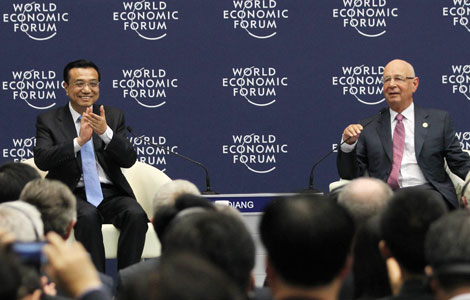

For Zeng, who spent eight years working in Japan's advertising industry before working for Beijing-based Toyota, said the stagnant sales should be blamed on the soured Sino-Japan relations.
"On the other hand, car companies from the Republic of Korea and Germany swooped in last year when some Japanese firms were retreating from the market, providing Chinese consumers with more choices," said Zeng.
He said that many China-Japan cooperative projects have been delayed and postponed with no exact date of resumption. "It takes time, I doubt it will recover until next year," he said.
However, some Japanese insiders have attributed the bleak status quo to more than just political rift over the Diaoyu Islands, but also factors such as China's economic restructuring and its growing labor costs.
Minoru Arahata, director of the Dalian branch of JETRO, said China has placed higher standards on investments and trading along with its economic growth deceleration, which have hampered Sino-Japan economic trade.
Japan resorted to monetary quantitative easing to stimulate its economy, and the devalued yen also required Japanese companies to pay more.
Japan has encouraged its enterprises to invest in the Association of Southeast Asian Nations (ASEAN) through what is called the "China+1" strategy, which refers to diversified investment into the ASEAN as an alternative to China.
Japan Economic News (Nikkei) commented that the strategy is a method of "assuring the connection with China's market while escaping the political risks."
For Japanese firms, however, the importance of China's market has not changed, the Japanese daily paper added.
The latest survey from JETRO suggests that 59 percent of Japanese firms polled will maintain investments in China, and 25 percent of them are considering an expansion.
Haruyuki Kinoshita has promoted Japanese health products in China for three years and peppers his fluent Mandarin with Beijing slang.
"It's important to speak Chinese and understand Chinese culture," said the 50-year-old business man, who has looked to the emerging market and expected China business to expand to account for more than half of his company's overall business.
"The China market is of great potential as Chinese people are increasingly concerned about health, providing us opportunities," said Haruyuki.
 Highlights of CIAPE 2013
Highlights of CIAPE 2013
 2013 China International Auto Parts Expo kicks off in Beijing
2013 China International Auto Parts Expo kicks off in Beijing
 Tesla, electric, hybrid cars at Frankfurt 2013 Motor Show
Tesla, electric, hybrid cars at Frankfurt 2013 Motor Show
 Supercars at Frankfurt 2013 Motor Show
Supercars at Frankfurt 2013 Motor Show
 Cars, models at Frankfurt 2013 Motor Show
Cars, models at Frankfurt 2013 Motor Show
 Concept cars at Frankfurt 2013 motor show
Concept cars at Frankfurt 2013 motor show
 Premier Li meets entrepreneurs, answers questions
Premier Li meets entrepreneurs, answers questions
 Premier stresses education equality
Premier stresses education equality